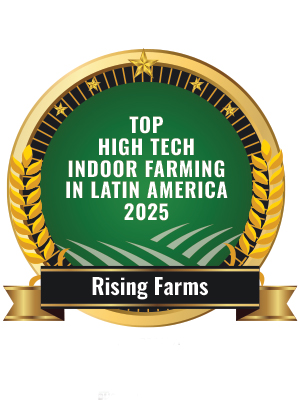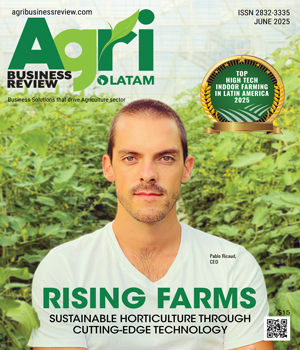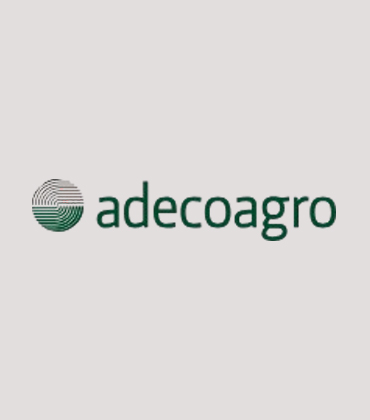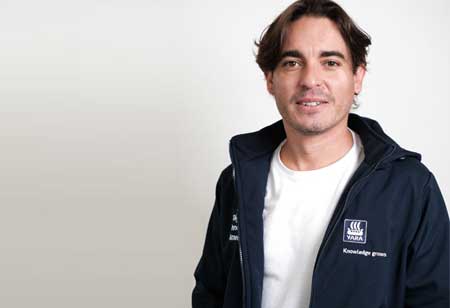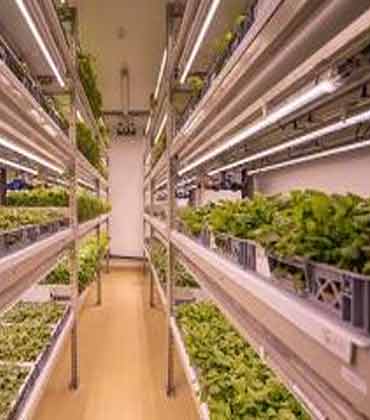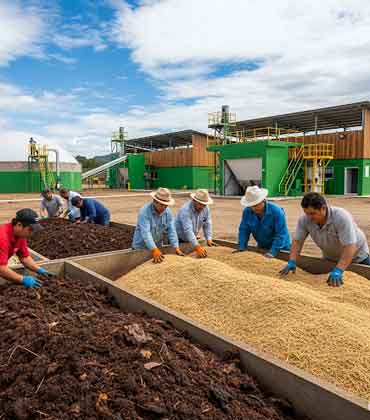Thank you for Subscribing to Agri Business Review Weekly Brief
Agri Business Review: Specials Magazine
The modern consumer is more discerning than ever, making every purchase a conscious choice. It’s no longer just about taste, rather safety, sustainability and quality now drive their decisions. Those who team up with sustainable wholesalers will drive the next era of food retail. Rising Farms is that partner, turning this vision into reality through uncompromising sustainable excellence. A high-tech indoor farming producer and packer specializing in premium-quality tomatoes, the company integrates modern agricultural technologies to create a highly efficient and sustainable farming operation. The result is a product that meets the highest industry standards and endorsed by top-tier retailers across Canada and the United States. “Our product is the best because we give plants what they need when they need it,” says Pablo Ricaud, CEO. “We use a combination of cutting-edge technologies like precision irrigation, climate control, artificial intelligence and automated packing machinery for an enhanced indoor farming system.” The Path to Success: Automation Rising Farms’ technicians and managers have developed proprietary AI-driven systems that autonomously adjust irrigation, ventilation and heating based on real-time environmental conditions. They eliminate human error, ensuring that crops receive optimal care every hour of every day. If the temperature rises or humidity levels change, it instantly recalibrates, adjusting nutrient mixes and water distribution accordingly. As land and water resources grow scarcer by the day, Rising Farms’ model presents a better alternative to meet growing food demands while protecting the environment. Its combination of hydroponic growing techniques and AI-driven climate control systems yields up to 30 times more output per square meter than traditional farming while using 90 percent less water per pound of produce. This level of excellence, however, was not achieved overnight. A Success Built on Determination Rising Farms’ journey to leadership in sustainable agriculture is a story of grit and determination. The company was built from the ground up during one of the most challenging periods in modern history — early 2020, when the world was grappling with the COVID-19 pandemic. Despite hurdles, it soldiered on, growing steadily and becoming one of the most prominent players in the market. Rising Farms has maintained an impressive annual growth rate of 75 percent since its founding and is poised to scale even further. Recently, the company hit yet another milestone by acquiring of a third operation in Mexico. Backed by a Swiss sustainability fund, this strategic move provides scalable capital structures to drive future growth.
Agriculture Waste to Renewable Energy Solution in Latin America 2025
As global focus sharpens on responsible resource use and food security, Adecoagro stands out as a leading agribusiness innovator in South America. Operating in Argentina, Brazil and Uruguay, the company leverages the region’s fertile lands to produce sustainable food, renewable energy and value-added agricultural products for the global market. Since 2002, Adecoagro has focused on optimizing natural resources to produce essential goods in a sustainable, scalable and socially responsible manner. Today, the company cultivates over 220,000 hectares of productive land and operates integrated farming, dairy, sugar, ethanol and energy generation businesses. Its goal is to be the region’s most efficient, innovative and sustainable food and energy producer. While many agribusiness companies focus on scale alone, Adecoagro employs an integrated model that maximizes land use, minimizes waste, and closes resource loops. Crop rotation preserves soil health while biogas and cogeneration technologies power its facilities. Notably, sugarcane waste is transformed into renewable electricity. Each initiative reflects Adecoagro’s core philosophy: producing more food and energy with less environmental impact. Adecoagro’s purpose is to produce food and renewable energy sustainably. This commitment to sustainability and innovation is evident across Adecoagro’s business segments. In farming, Adecoagro produces grains, oilseeds, rice and peanuts, using precision agriculture technologies and no-till practices to improve yields while preserving biodiversity. In dairy, it operates South America’s largest and most advanced free-stall dairy farm, built to prioritize animal welfare, productivity and environmental control. Meanwhile, Adecoagro’s sugar, ethanol and energy operations rank among the most efficient globally. With vertically integrated mills in Brazil, it produces anhydrous and hydrous ethanol, raw sugar and electricity from sugarcane biomass. Over 100 percent of the electricity used in its operations is generated from renewable sources—making its energy business self-sufficient and a net contributor to Brazil’s energy grid.
CXO INSIGHTS
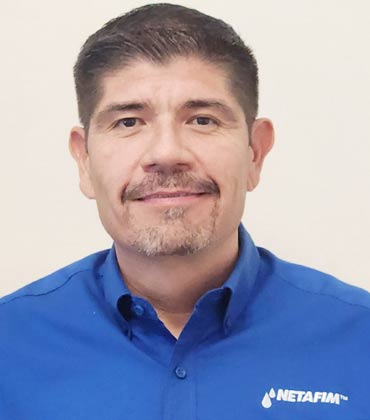
Precision Farming and its adoption challenges for Latin American countries
Oscar Gonzalez, Regional Director of Strategic Products and Crops LTAM, Netafim México
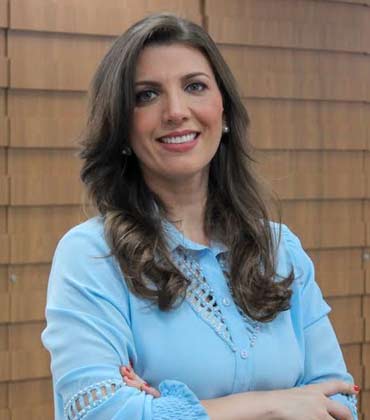
Livestock Traceability: The Challenges and Progress for Minerva Foods in South America
Tamara Lopes, Corporate Executive Sustainability Manager, Minerva Foods

Cultivating a greener future: Grupo Solave's Environmental Commitment
Axel Mederos Suarez, Environmental sustainability Chief, Grupo Solave

Crucial Questions for Evaluating New Biostimulant and Biological Technologies
Dr. Karl Wyant, Director of Agronomy, Nutrien[TSE: NTR]

Simplicity at Soli Organic is the Key to Scale
Steven Grimes, Head of Equipment and Technology, Soli Organic

Innovation as a key factor for Development of Specialty Products in Fish Aquaculture Rendering
Christopher Holmes, Research and Development Manager, Fiordo Austral

Sustainable Agriculture
Janaina Padoveze, Sustainability Manager and Thiago Jacob Miqueleto, Head of Marketing & Business Intelligence, Ajinomoto do Brasil (TYO: 2802)
IN FOCUS
EDITORIAL
Seeds of Change in Latin America’s Agriculture
In Brazil and Mexico, buildings once filled with offices now hold towering stacks of leafy greens, herbs, and vegetables grown with precision. Indoor farming uses artificial intelligence, hydroponics, and careful climate control to nurture fresh, clean produce in tight spaces. These farms save water, avoid chemical pesticides, and bring food closer to the millions who live in nearby cities.
At the same time, scientists across the region are tapping into native microbes to create biopesticides that strengthen plants naturally. These biological products improve yields, protect ecosystems, and help farmers adapt to climate challenges. Whether managing small plots or large fields, farmers are finding new ways to grow food sustainably.
By blending smart indoor farming with natural crop protection, Latin America is becoming a leader in climate-smart agriculture. This new approach supports environmental goals and opens up value throughout the supply chain—from exporters to urban grocers.
In this edition, we feature insights from Rising Farms, a pioneer in indoor vertical agriculture that is setting new standards for sustainable food production in Brazil. We also feature Armando Russi, Head of Sustainability, Comms & Public Affairs, Grupo AJE, and Marcus Teixeira, Head of Data and Analytics, Digital Innovation Americas, Yara International. Their insights show how forward-thinking strategies, from data-driven crop planning to purpose-led agribusiness, are elevating agriculture across the continent.

